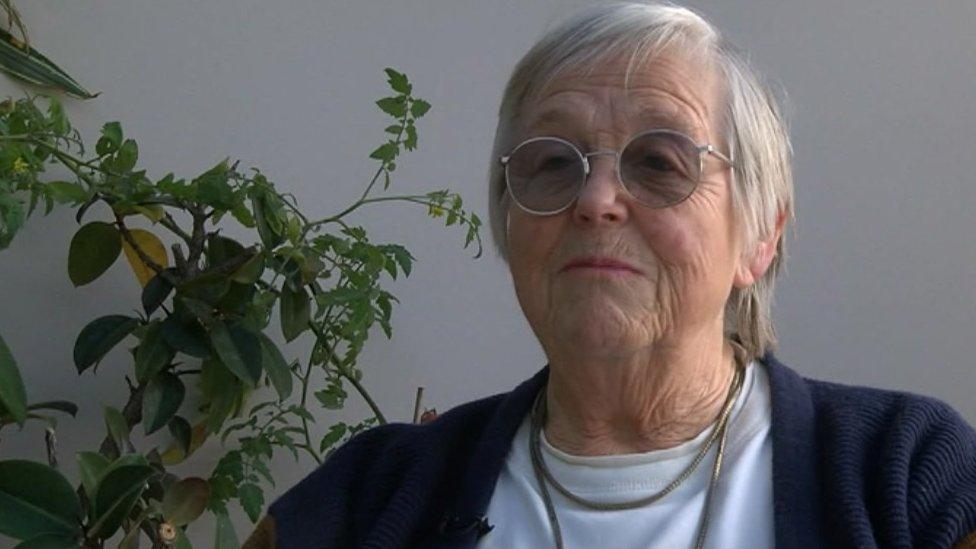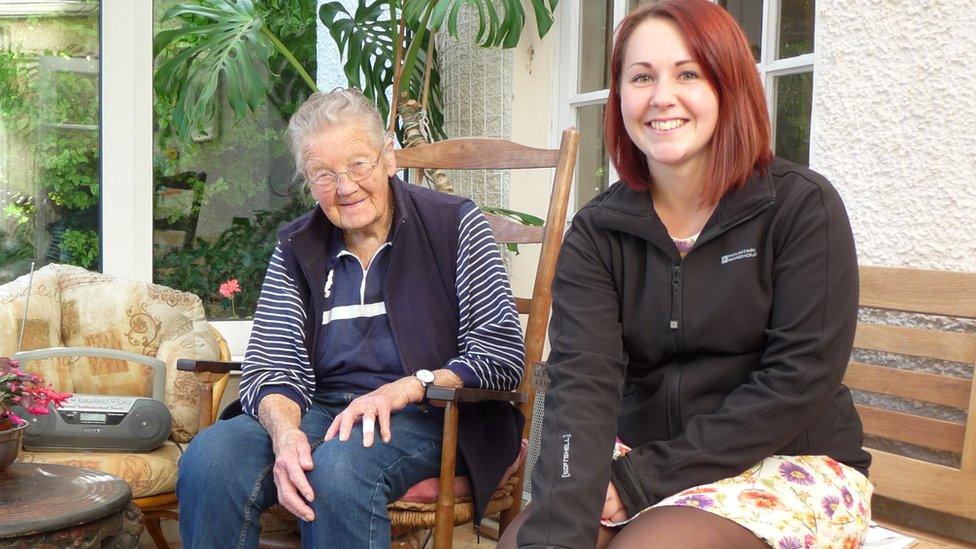Funding fears over Solva Care project in Pembrokeshire
- Published

Villagers in Pembrokeshire who started a unique project to look after the elderly in their community have said the service is at risk unless it can secure fresh funding.
The Solva Care project, which was officially launched in October last year, helps about 40 elderly people in the village.
It matches people who need support to 30 volunteers who provide it.
The project has received almost £77,000 in grants but this runs out in March.
Simon Thomas is a full-time carer for his mother Maggie, 73, who has dementia, but fellow villager Moira Johnston regularly comes to take her out for a walk.
"If I can take her back to Simon in a better place than when she came out, she's in her element," Ms Johnston said.
"You can make such a difference by just doing small things.
"Maggie loves to go out. People say to me, 'what do you get out of it?' Well, one day I went to pick her up and she said to me, 'I'm glad it's you, you make me laugh'.
"And that's just an hour of my day, it's nothing."
Volunteer Moira Johnston said the project makes a difference to the community
Mr Thomas said the project makes a difference to both of their lives.
"They come and take care of her while I can go and do banking or a bit of shopping. I think it's more help than I would get from any sort of state," he said.
The two-year pilot project started in April 2015 but was launched officially six months later in October and was hailed as the first of its kind in the UK.
It was given an initial grant of about £57,000 from the Welsh Government and Pembrokeshire Coast National Park Sustainable Development Fund, and more recently has received almost £20,000 from Hywel Dda University Health Board and Dyfed-Powys Police.

Ms Barker hopes the scheme could be rolled out to other areas in Wales
Fran Barker, vice chairwoman of the village committee that runs Solva Care, said members were trying to find ways of getting new funding.
"In the scheme of things it's a very small amount of money. And when you look at the number of hours that are being worked by people free of charge from their own goodwill, that would be lost if this scheme stopped, I think it is significant," she said.
"Our other feeling too is that because we feel we've devised a scheme that works it would be nice if it could be rolled out to other places."
- Published23 October 2015

- Published28 February 2012